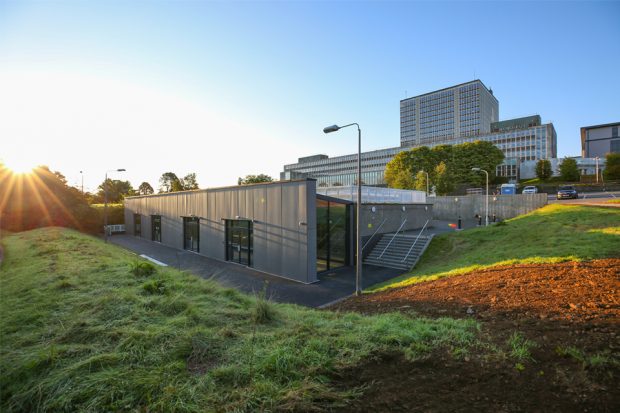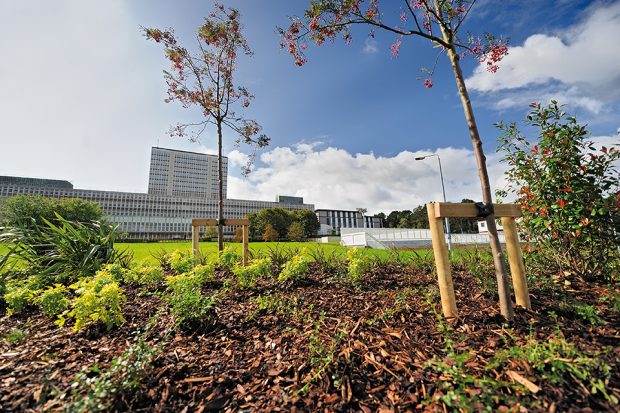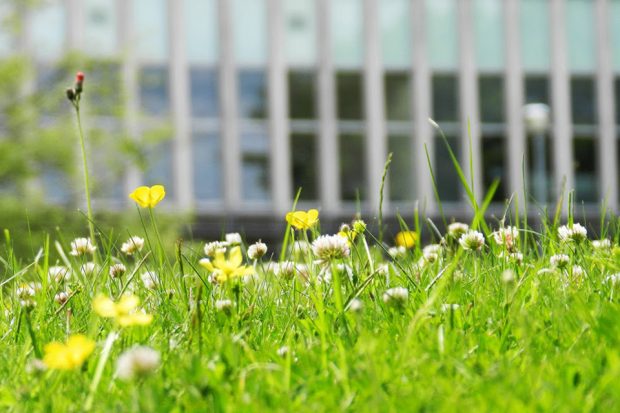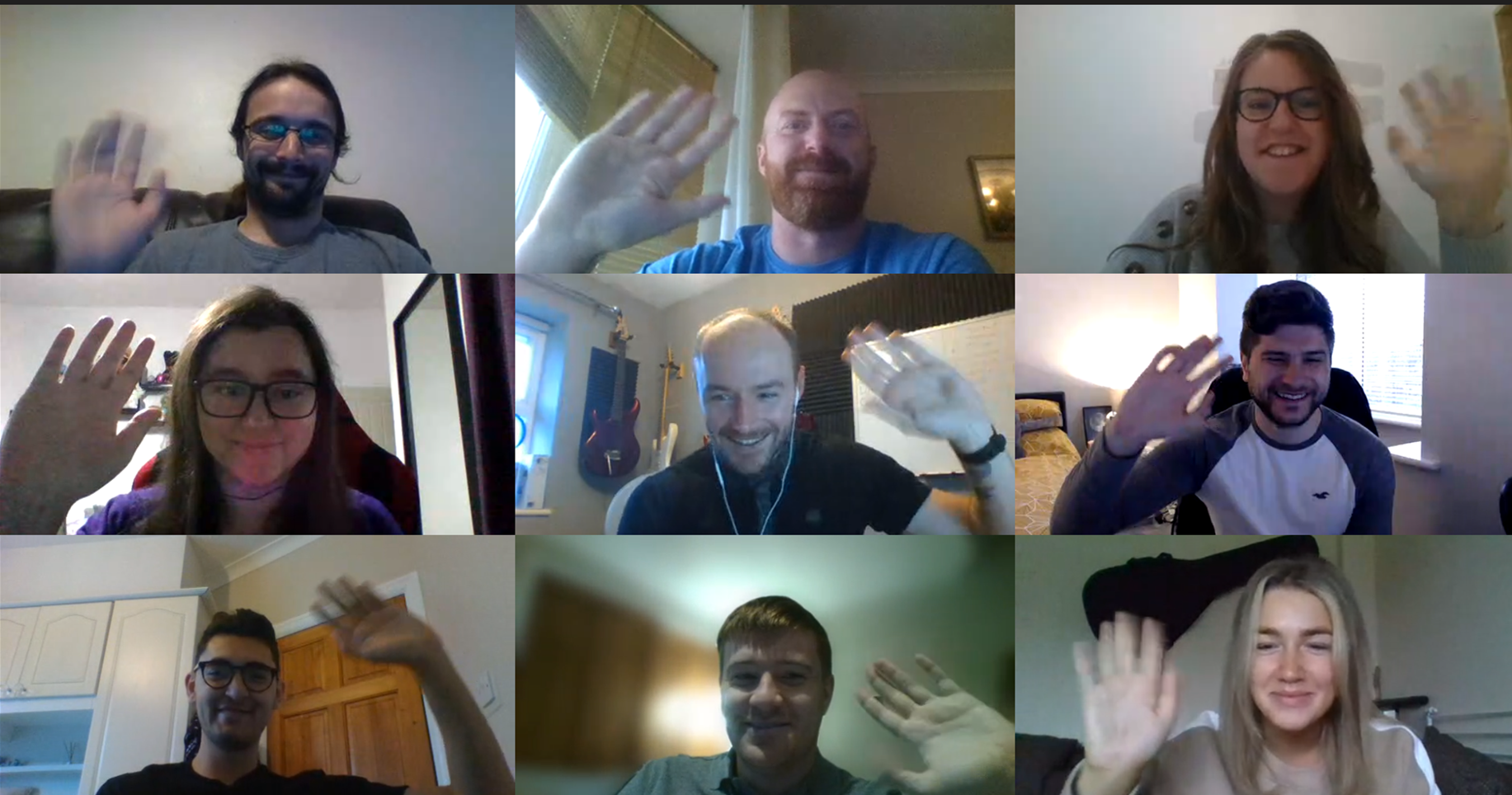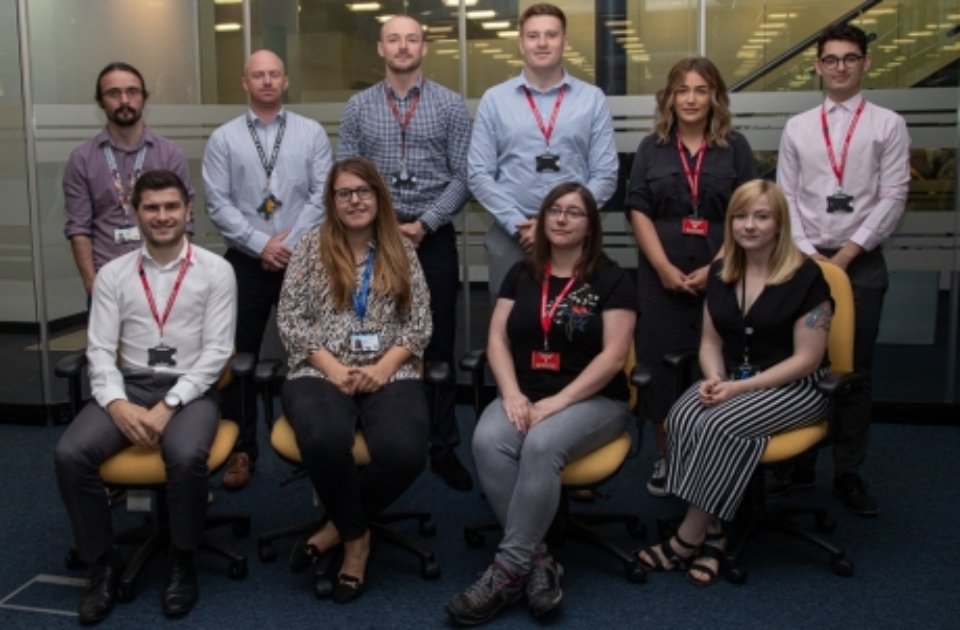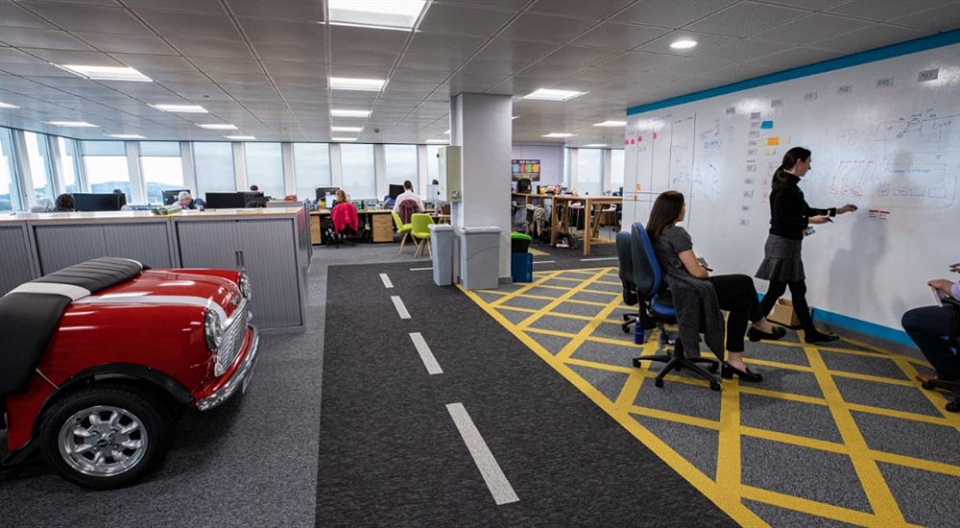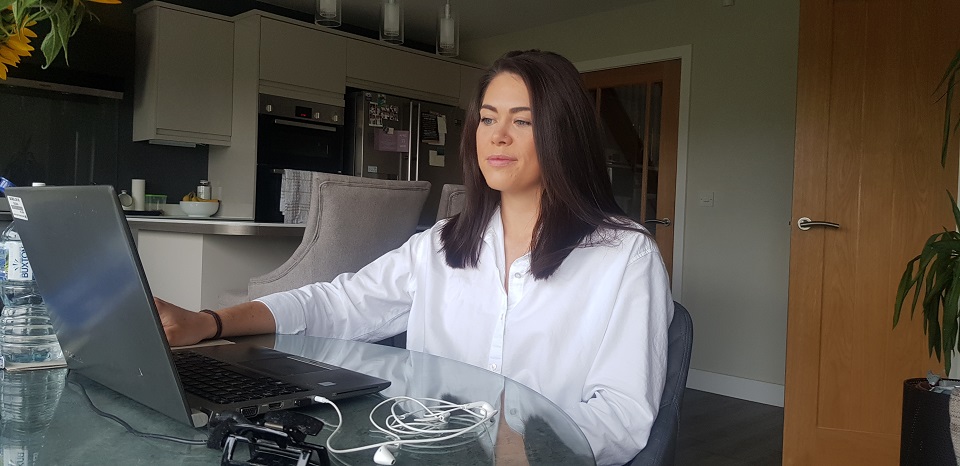[English] – [Cymraeg]
If you’ve ever used DVLA’s public online services, you may well have spotted that most of them are also available in Welsh or used them yourself if you speak the language. As today is Welsh language rights day (‘Mae gen i hawl’), it’s the ideal time to reveal more about how we developed our 2 newest bilingual online services.
Welsh language rights day, which is promoted by the Welsh Language Commissioner, celebrates the Welsh language services provided by organisations and the rights people have to use them. We definitely had good reason to celebrate our bilingual online services recently, as our 2 latest ones – change address on your vehicle log book (V5C) and get a duplicate log book (V5C) – were the first ones we developed and launched in English and Welsh at the same time.
Here’s how we did it
I’ve worked with the Welsh Language Policy (WLP) team regularly over the last few years as vehicle registration service designer on several big changes, and I’m fully aware of the Welsh Language Act 1993 requirements to provide translations of forms, letters and online services. My first step was to include these requirements from the very start for our vehicle change of address (or VCOA for short) and duplicate V5C services.
We shared the content and structure with WLP Manager Rhianedd Rhys and her team as soon as they were finalised. This meant she could get the translations over to us to integrate into the service as a finished product.
What really helped us achieve this was the great working partnership between my Service Design team, the business analysts for the project and WLP, which ensured we got everything done successfully and on time.

There were a couple of challenges…
Our biggest challenge was around time really and making sure what we sent to be translated was the final wording. Welsh translations tend to be longer than the English equivalent so we did face some issues about length of fields and space on screens to accommodate the additional space needed for the translations, which can be tricky at times. Nothing we couldn’t get sorted together though.
We learned handy lessons too
We certainly learned from VCOA, as we started working on the get a duplicate V5C service within a week of VCOA going live. We structured the project planning more, so when we finalised the screens we passed them for translation more regularly. There were a few last-minute changes because of insight but that is to be expected. It is agile after all.
Bilingual bonus for users
The signs so far from users are really encouraging. Take-up of the 2 new Welsh services is already on a par with our long-established services like tax your vehicle online and driver licensing online, which have been around for many years.
And finally…
I’m not a Welsh speaker but was proud to deliver these services in Welsh. It would never occur to me that to do so would ever be an optional extra, so I see it as standard. I would like to recognise the patience, support and delivery of Rhianedd and her team, as we would not have done it on time without them.
I’m absolutely delighted that the Welsh services went live at the same time as the English services,” adds Rhianedd. “These end-to-end Welsh language journeys are great news for us and our customers who wish to transact with us in Welsh, and build on the Welsh services we already provide. Thanks to everyone who made this happen!
“Our Welsh language scheme sets out our commitments to the Welsh language, as agreed with the Welsh Language Commissioner. We have a responsibility to show that we’re treating the Welsh and English languages equally. We’re very proud that usage of our current Welsh online services has increased year on year, so it was extremely important that these 2 services were launched at the same time as the English ones to make sure our Welsh-speaking customers can use their language of choice.
Da iawn bawb (well done everyone)!
All of our Welsh online services are listed on GOV.UK’s Welsh online services page, and you can find them under ‘Trwyddedau gyrru’ and ‘Rhifau cofrestru cerbyd, treth cerbyd a phrofion MOT’.
[English] – [Cymraeg]
Os ydych chi erioed wedi defnyddio gwasanaethau ar-lein cyhoeddus, mae’n bosibl eich bod wedi gweld bod y rhan fwyaf ohonynt hefyd ar gael yn Gymraeg neu efallai eich bod wedi eu defnyddio nhw os ydych yn siaradwr Cymraeg. Gan fod heddiw yn ddiwrnod ‘Mae gen i hawl’, hwn yw’r amser perffaith i ddatgelu mwy ynghylch sut wnaethom ddatblygu ein 2 wasanaeth ar-lein dwyieithog fwyaf newydd.
Mae diwrnod ‘Mae gen i hawl’ sy’n cael ei hyrwyddo gan Gomisiynydd y Gymraeg, yn dathlu’r gwasanaethau Cymraeg sy’n cael eu darparu gan sefydliadau a’r hawliau sydd gan bobl i’w defnyddio nhw. Yn bendant roedd gennym reswm da i ddathlu ein gwasanaethau ar-lein dwyieithog yn ddiweddar, wrth i’n 2 wasanaeth newydd – newid cyfeiriad ar eich llyfr log cerbyd (V5CW) a chael llyfr log dyblyg (V5CW) – fod y rhai cyntaf i ni eu datblygu a’u lansio yn y Gymraeg a’r Saesneg ar yr un pryd.
Dyma sut aethom ati
Rwyf wedi gweithio gyda thîm Polisi’r Iaith Gymraeg yn rheolaidd dros y blynyddoedd diwethaf fel dylunydd gwasanaeth cofrestru cerbydau ar nifer o newidiadau mawr, ac rwyf yn llwyr ymwybodol o ofynion Deddf yr Iaith Gymraeg 1993 i ddarparu ffurflenni, llythyron a gwasanaethau Cymraeg. Fy ngham cyntaf oedd cynnwys y gofynion hyn o’r dechrau gyntaf ar gyfer ein gwasanaethau – newid cyfeiriad cerbyd (VCOA yn fyr) a V5CW dyblyg.
Rhannom y cynnwys a’r strwythur gyda Rheolwr Polisi’r Gymraeg Rhianedd Rhys a’i thîm mor gynted â’u bod wedi’u gorffen. Roedd hyn yn golygu y gallai anfon y cyfieithiadau draw atom fel y gallwn eu hintegreiddio i’r gwasanaeth fel cynnyrch a oedd wedi’u cwblhau.
Yr hyn a oedd wedi ein helpu i gyflawni hyn oedd y bartneriaeth gweithio da rhwng y tîm Dylunio Gwasanaeth, y dadansoddwyr busnes am y prosiect a thîm Polisi’r Gymraeg, a wnaeth sicrhau ein bod wedi gallu gwneud popeth yn llwyddiannus ac ar amser.

Roedd ychydig o heriau…
Ein her fwyaf oedd yn ymwneud ag amser yn bennaf a sicrhau bod y gwaith roeddwn yn anfon i’w cyfieithu oedd y cynnwys terfynol. Mae cyfieithiadau Cymraeg yn dueddol o fod yn hirach na’r cynnwys Saesneg felly wnaethom wynebu rhai problemau gyda hyd y meysydd a’r lle ar y sgrin i gynnwys y lle ychwanegol oedd eu hangen am y cyfieithiadau, a allai fod yn ddyrys ar adegau. Serch hynny, nid oedd dim byd nad oeddwn yn gallu eu datrys gyda’n gilydd.
Dysgom gwersi hwylus hefyd
Roeddwn yn bendant wedi dysgu o VCOA, wrth i ni ddechrau gweithio ar y gwasanaethau cael V5CW dyblyg o fewn wythnos i VCOA fynd yn fyw. Roeddwn wedi strwythuro cynllunio’r prosiect yn fwy, felly wrth i ni orffen y sgriniau roeddwn yn eu hanfon i gael eu cyfieithu’n fwy rheolaidd. Roedd ychydig o newidiadau munud diwethaf yn dilyn mewnwelediad ond mae hynny i’w disgwyl. Dyna beth yw gweithio’n ystwyth wedi’r cwbl.
Bonws dwyieithog am ddefnyddwyr
Mae’r arwyddion hyd yma wrth ddefnyddwyr yn galonogol iawn. Mae’r nifer sydd wedi defnyddio’r 2 wasanaeth Cymraeg newydd yn barod yn hafal gyda’n gwasanaethau sydd wedi’u sefydlu ers tro fel trethu eich cerbyd ar-lein a thrwyddedu gyrwyr ar-lein, sydd wedi bod mewn bodolaeth ers nifer o flynyddoedd.
Ac yn olaf…
Nid wyf yn siaradwr Cymraeg (diolch i Rhianedd am gyfieithu’r flog hwn i mi), ond roeddwn yn falch iawn i greu’r gwasanaethau yma’n Gymraeg. Ni fyddai fyth yn croesi fy meddwl ei fod yn ychwanegiad opsiynol, felly rwyf yn ei weld fel cam safonol. Hoffwn gydnabod amynedd, cefnogaeth a gwaith Rhianedd a’i thîm, oherwydd ni fyddwn wedi gallu eu cyflwyno ar amser hebddynt.
Rwy’n hynod falch fod y gwasanaethau Cymraeg wedi mynd yn fyw ar yr un adeg â’r gwasanaethau Saesneg,” ychwanegodd Rhianedd. “Mae’r teithiau hyn sy’n gwbl Gymraeg o’r dechrau i’r diwedd yn newyddion arbennig i ni a’n cwsmeriaid sy’n dymuno trafod gyda ni yn Gymraeg ac yn adeiladu ar y gwasanaethau Cymraeg rydym eisoes yn eu darparu. Diolch i bawb a wnaeth i hyn ddigwydd!
“Mae ein Cynllun Iaith Gymraeg a gytunwyd gyda Chomisiynydd y Gymraeg yn dangos ein hymrwymiad i’r iaith Gymraeg. Mae gennym gyfrifoldeb i ddangos ein bod yn trin y Gymraeg a’r Saesneg yn gyfartal. Rydym yn falch iawn bod ein gwasanaethau Cymraeg presennol wedi gweld cynnydd blwyddyn ar ôl blwyddyn yn y nifer sy’n eu defnyddio felly roedd yn bwysig iawn sicrhau bod y 2 wasanaeth newydd hyn yn cael eu lansio ar yr un pryd â’r gwasanaethau Saesneg. Mae hyn yn sicrhau bod ein cwsmeriaid Cymraeg eu hiaith yn gallu defnyddio’r iaith o’u dewis nhw wrth drafod gyda ni.
Da iawn bawb!
Mae ein holl wasanaethau ar-lein Cymraeg wedi’u rhestri ar dudalen gwasanaethau ar-lein Cymraeg GOV.UK, a gallwch ddod o hyd iddynt o dan ‘Trwyddedau gyrru’ a Rhifau cofrestru cerbyd, treth cerbyd a phrofion MOT’.
Let’s block ads! (Why?)

